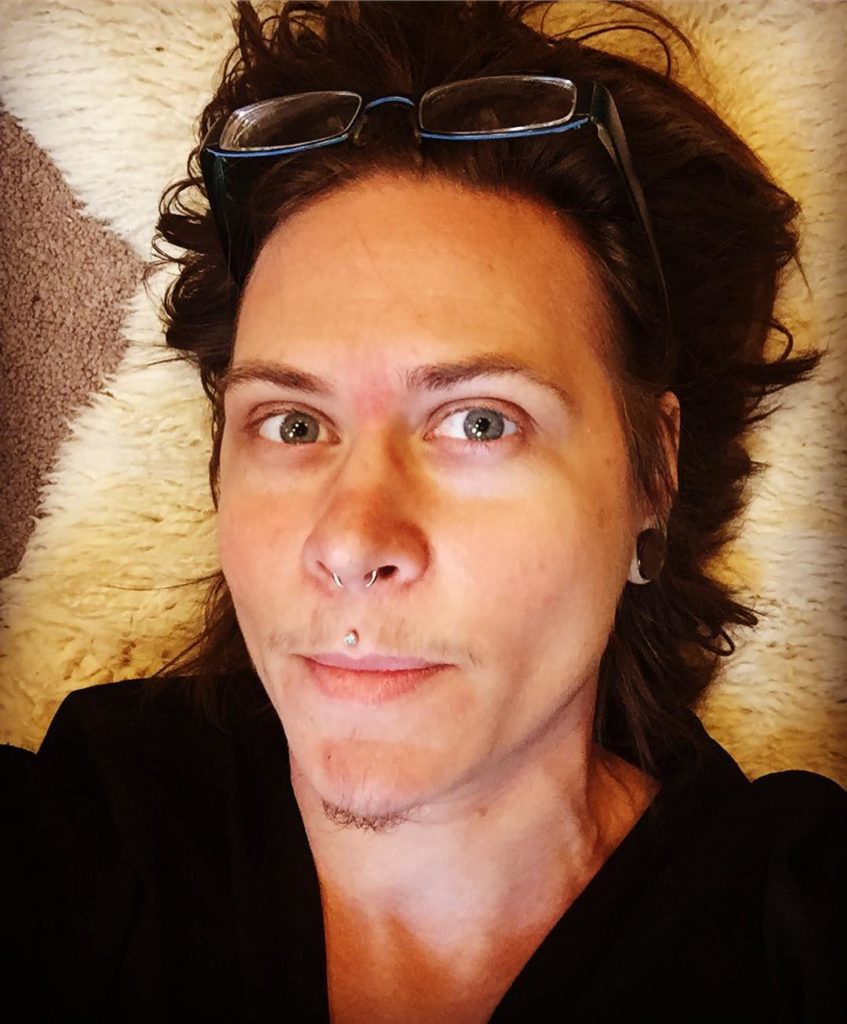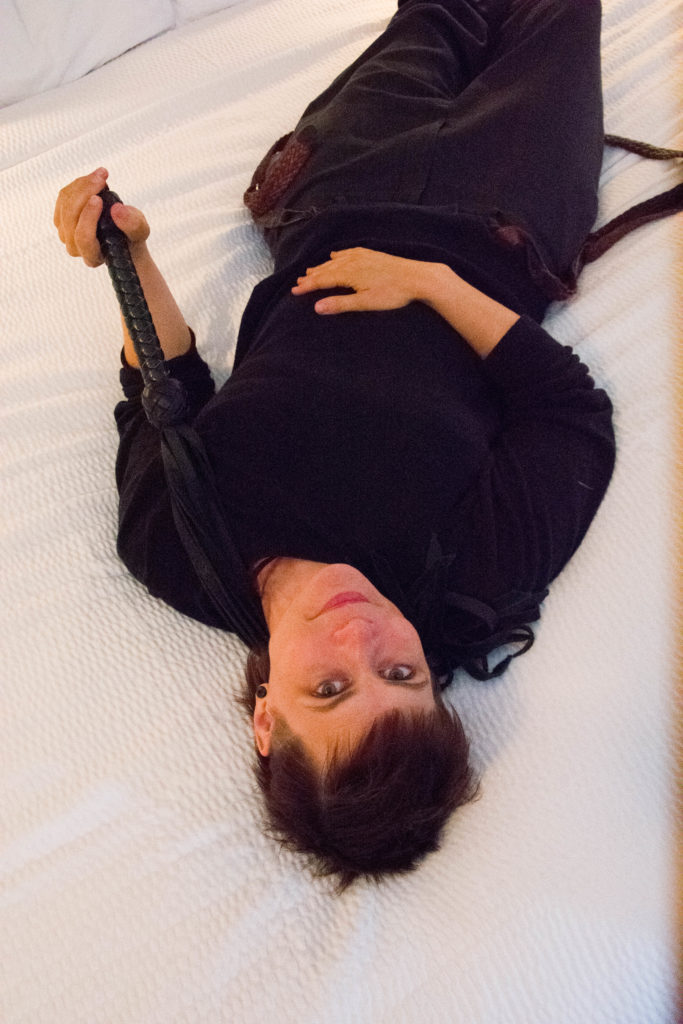
Dear Creature,
While out to dinner with my newest housemate, I was asked a question I wasn’t able to answer, but immediately thought of you as the perfect person to consult! We’re putting together a panel/social for queer, femme-identifying and gender non-binary folx, and we are inquiring about the differences between “gender nonbinary” and “gender non-conforming” identities, which I can only imagine are quite nuanced.
I think I might identify as queer, cis-fem, and at times gender non-conforming in the way I dress and behave and do sex… and other times in a highly gender conforming, feminine manner. I suppose behaving like a creature would also make me gender non-conforming… right? I feel rather behind on many conversations my peers are having on the subject matter, and I want to keep up… I’m just a bit out of practice.
I’d love to know your thoughts! Hope you are having a day filled with magic of all kinds!
###
Thank you for this great question!
In general, I’d say “nonbinary” is an umbrella term which covers terms such as genderqueer, genderfluid, nonbinary, gender non-conforming, a-gender, third gender, two-spirit… etc. It’s descriptive of people who do not subscribe to or feel properly defined by the limitations of a binary male vs. female identity. Nonbinary identifying people generally believe ourselves to fall into identity spaces which are neither male nor female, or we embrace traits of both, and/or see ourselves as other. Nonbinary points to gender as a spectrum of two or three dimensions, rather than two sides of a coin.
“Non-conforming” is just that: people who acknowledge themselves as existing within male or female spaces at some level, but don’t subscribe to a conformist social view of how those genders/sexes are “supposed to” look/act/feel/desire/present… etc.
Considering these terms side by side, you can be both nonbinary and gender non-conforming. You can also identify as cis and non-conforming, or binary trans and non-conforming. On one level it can be looked at as: non-conforming is something you “do”, while nonbinary speaks more to who or how you “are”.
Identity is highly personal. We get to use the words we feel connected to, using descriptions of these words in the ways which make most sense to us. It’s important to keep in mind that people describe their identities in different ways, sometimes using the same words to invoke different meanings, feelings, and behaviors. It’s helpful to understand a variety of meanings when discussing these things with others.
To reference the way you describe your identity above, some of the words you are using seem to have slightly different definitions from the ones I use, and that’s great! One example of where our definitions seem to diverge is within the concept of conformity. I, someone who identifies as nonbinary, don’t personally subscribe to the concept of gender existing within the binary format at all, so “acting female” or “acting like a woman” doesn’t really mean anything specific to me. Therefore it’s hard to be “non-conforming” regarding my tastes and behaviors “as a woman” (which is also one of my gender identities).
To explore this ideal further: is it “feminine” for a cis man to desire anal penetration? My answer would be absolutely not. The prostate, when stimulated properly, can offer extreme pleasure. Is pleasure gendered or sexed? If we can say “no, pleasure itself is without sex or gender”, it follows that there is nothing gendered or sexed about the desire to or behavior of being penetrated. Therefore the desire to penetrate is also not sexed or gendered, meaning any person can desire penetration or to penetrate without it being seen as outside the norms of human agency and desire. It is not non-conformist to perform or desire either of these acts.
Another subtlety I’ll entertain in this conversation is that there is a difference between binary transgender identities and nonbinary transgender identities, particularly when it comes to issues of gender conformity. Those transgender people who view themselves as binary will sometimes have certain ideals or views more in common with cis people when it comes to gendered or sexed expectations. There may be more of an emphasis on or desire to “pass”, which can employ the tools of conformity at times. There are certainly binary trans folks who define “what a man or woman looks like” as what they themselves look like, by default of being a man or woman regardless of their personal ability to publicly pass as the gender they identify with.
So what even is the purpose of gender within descriptive language? I might say that certain “airs” contain an aspect of feminine energy or masculine energy, and that we all have each and other energies within us to draw from. So for me, non-conforming is less relevant to enunciate in general. My identities as genderfluid and nonbinary are already non-conformist by our binary social standards and definitions. Every individual has a capacity to take on and utilize a number of different energies, and therefore society’s ideas about conformity are just plain ‘ol incorrect by my definitions. Regardless, I certainly still get hung up on and have to examine and reexamine what I feel are instilled expectations vs. personal desires as I show my face publicly—or even as I define what I enjoy and find attractive about myself privately. Sticky work, unravelling this mess is…
To end on a positive note, if it’s empowering to you as a cis identifying person to interact with the socially constructed ideas of feminine and masculine as a jumping off point for conformity and non-conformity, then absolutely use those terms and words in the ways that describe your journey and your evolution best! This is one of the things that I love about identity conversations: they can go anywhere. When communicated thoughtfully and investigated more and more deeply, they teach us to hear one another and even to better understand ourselves more clearly over a lifetime.
Play On My Friends,
~ Creature
This writing takes time, research, and consideration. It is my art.
Please visit my Patreon, offer one time Support or email me for options. Thank you.
